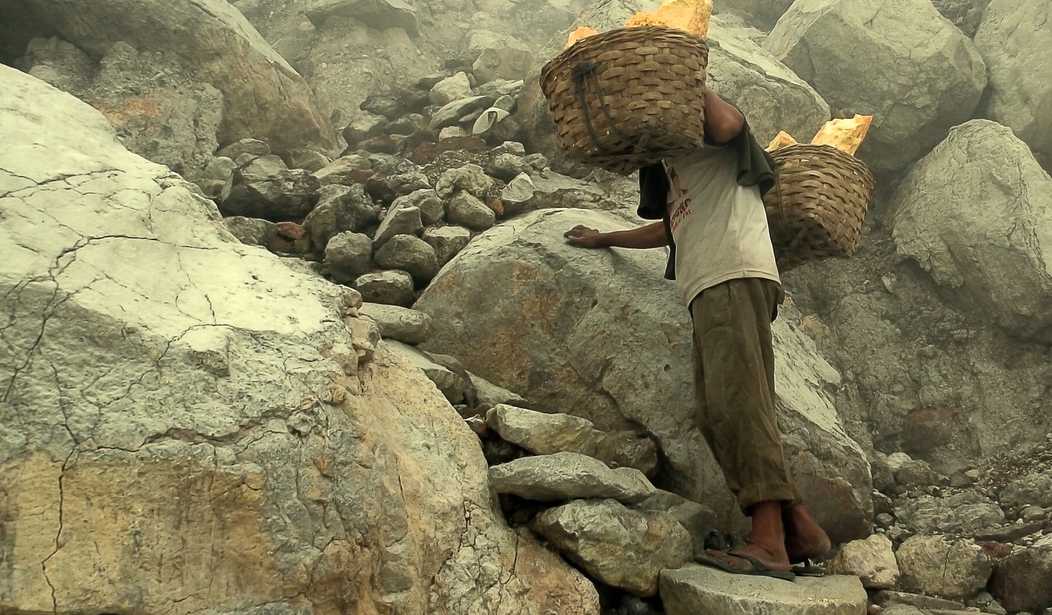A fate worse than death?
Would changing the terms of life without parole to something more punitive — call it hard-life — mean that if given a choice, more of those condemned to life would opt for death?
What if life without parole included hard labor?
Convicted murderess Jodi Arias is back in the news, having lost her visitation privileges for 180 days for calling a prison guard a “c%^$-blocker.” Since the Urban Dictionary includes vernacular for both sexual organs in defining the term, it is not clear from published reports which variation Arias used.
It’s been just under a year since Arias was sentenced to Arizona’s “natural life,” which unlike a “life” sentence means she will never be eligible for parole.
Soon after the sentencing we got a look at the cell where she will spend the rest of her life. For the first five years, her confinement at the Lumley Unit at the Arizona State Prison Complex will be particularly grim: solitary confinement, prison food through a slot, no contact visits (visits without a plate glass barrier), and only short, unaccompanied exercise periods to break the routine.
After five years, with perfect behavior (a status she has temporarily blown), Arias may attain medium security status, and qualify for privileges, including opportunities for contact visits, interaction with the general population, and the potential to earn a low-wage income at various prison jobs. With her earnings she would be able to shop at the prison store.
Every remaining night of her life, however, she will live, sleep, and breathe in total isolation with a sink-over-toilet, two slotted windows, and no hope beyond whatever faith she can find in the ruins of her life.
It’s a stone bitch, but if the only alternative was an enforced death penalty, the vast majority of us would fight to live that life.
I posit that if a life sentence involved an eternity of asceticism and physical toil, a theoretical choice between hard-life and death would become a real consideration for a percentage of the condemned.
The Biblical “eye for an eye,” and an unhappy pragmatism about the need to thin the herd of violent sociopaths and premeditating murderers have contributed to a consensus that marks the United States as a last Western holdout in favor of capital punishment.
This photo shoot of infamous nurse-killer Richard Speck may be one indication why. Scenes like these understandably strike many victimized families and law-abiding citizens as a betrayal of the innocent, and convey a perception that our relative mercy for killers is being reciprocated poorly by the miscreant.
Spiritually oriented people often oppose the death penalty on grounds that only God should have ultimate power of life over death. Opposition can also come from the secular belief that a state should never be in the business of taking a life. From these perspectives, the worst a moral society can condemn its transgressors to is natural life without parole.
If we accept these theological and ethical limits on the punishment civilized societies may inflict on their worst malefactors, it only remains to determine the quality of that imprisonment. What if a life sentence included a component of hard labor, day in and day out, with a rest on Sunday? A lifelong ban on the comforts and privileges less contemptible inmates enjoy. No television, no cigarettes, no dope. Absolutely no conjugal visits, and medical care that never includes such elective procedures as sex reassignment surgery.
Would such a life be more cruel and unusual than the quickened asphyxia of a lethal injection?
Not a week goes by in America that doesn’t compel us to consider our positions on capital punishment.
Another horrendous murder has occurred that for death penalty advocates perfectly illustrates the kind of evil that capital punishment was designed to redress. If not these two, especially the male, who should society ever execute?
If convicted and sentenced to life, David Eisenhauer, 18, and Natalie Keepers, 19, alleged murderer and accomplice respectively, will have a very long time to think about the reprehensible and premeditated act that left 13-year-old Nicole Madison Lovell stabbed to death along a North Carolina roadside.
Three possibilities: what we have now (which is varying iterations of conventional confinement for life), death, or hard-life.
Contrasting Arias, who hoped upon hope that her lawyers would successfully argue for a life sentence, with Oklahoma bomber Timothy McVeigh, who opted not to exhaust the appeals process, can be instructive when considering the quality of life under a sentence of natural life imprisonment.
McVeigh rejected any chance he had to live, saying that he would rather die than spend his life in prison. Jodi Arias instructed her attorneys to fight to keep her alive.
That’s where we’ll leave this femme fatale, to season-out like a caged Komodo dragon, to search the bleak corridors for a sustaining spirituality, to sleep forever alone, and then die.
Most of us would be right in there with her. Change the equation to a hard choice about hard-life and fewer of us would.










Join the conversation as a VIP Member